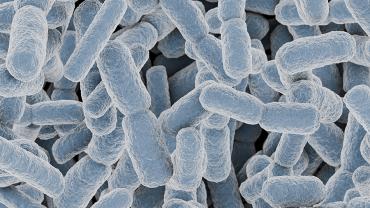
Probiotics are living microorganisms that have been shown in research to support human health. Certain species of probiotics have been shown to support gastrointestinal health, immune function, and respiratory health. Recent research indicates that some probiotic species may also support exercise recovery and other aspects of sports performance.
High-intensity exercise can affect many physiological processes in the human body. Damage to muscles, increased free radical production, and an inflammatory response may occur after high-intensity exercise. These changes may last for approximately 96 hours post-exercise.
Lactobacillus plantarum (L. plantarum) is a species that is classified as a probiotic. One strain, L. plantarum TWK10, has been shown in preclinical and clinical studies to help support muscle function and exercise capacity. Another strain, L. plantarum PS128, has been shown in studies to support immune function, muscle recovery, and the body’s response to inflammation and oxidative stress. A recently published randomized, double-blind, placebo-controlled, crossover clinical trial by Fu and colleagues assessed the efficacy of supplementation with L. plantarum PS128 on exercise recovery in individuals after a half-marathon.
In the study by Fu and colleagues, participants took 2 capsules of L. plantarum PS128 both in the morning and in the evening before meals for 4 weeks. Each capsule contained 30 billion colony-forming units (CFUs). Study participants were described as recreational runners. Half-marathons were performed at baseline and the end of the 4-week study period.
The metrics assessed in this study included exercise capacity tests involving lower extremity muscle strength, lower extremity explosive force, anaerobic power, and aerobic capacity. Blood samples were also taken at intervals throughout the study. The biomarkers assessed were related to muscle damage, muscle fatigue, oxidative stress, and renal injury.
The study results indicate that supplementation with L. plantarum PS128 may have been associated with improvements in muscle damage and oxidative stress. In addition, a significant difference in lower extremity muscle strength between the placebo and treatment groups was observed 72 hours after the half-marathon. The treatment group was also shown to experience changes in myoglobin and creatine phosphokinase, suggesting lower muscle damage as compared to the placebo.
Although the results reported by Fu and colleagues show promise, the sample size of this study was low. More research is needed before further conclusions can be determined. However, the results do indicate that further investigation into the supportive role of L. plantarum PS128 is warranted.
L. plantarum is a probiotic that has been shown to support many aspects of human health. In addition, the study results described in this update indicate that L. plantarum PS128 may support certain aspects of exercise recovery.
By Colleen Ambrose, ND, MAT